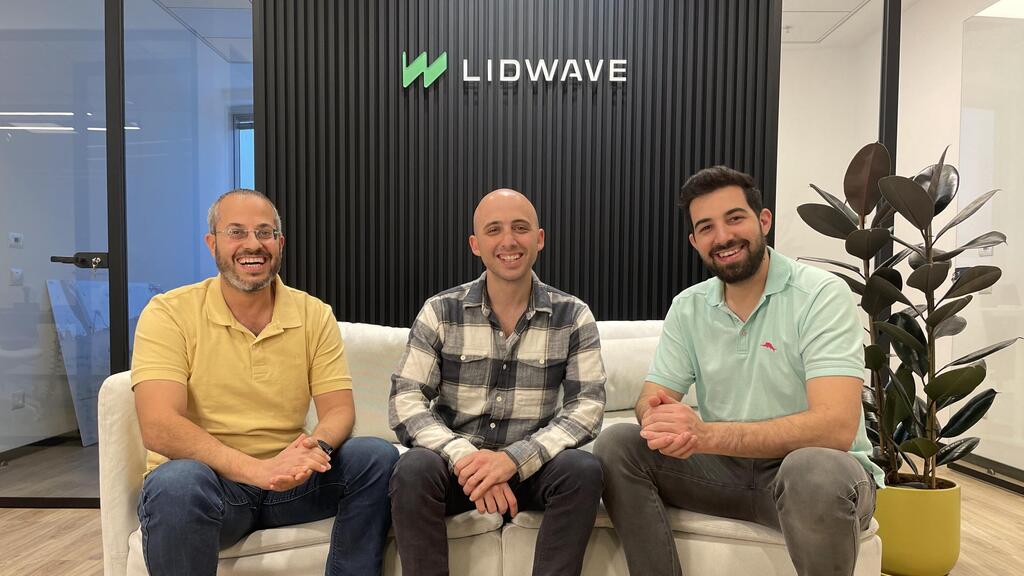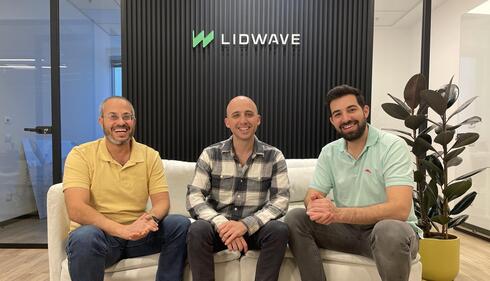
Lidwave’s LiDAR technology may help eliminate drone threats
Drone attacks have been a persistent challenge for war-stricken countries. This company may have a solution.
As Israel’s war with its neighbors settles into its second year, more weaponry is being deployed to wreak havoc on citizens who are subject to missiles and, increasingly, drone attacks. Whereas the former can be intercepted by Israel’s Iron Dome system, the latter has proven more difficult to detect and prevent.
Israel has been victim to an increasing amount of drone attacks sent by Hezbollah and Yemen’s Houthis which are causing increased headaches for the IDF as they scramble to find ways to protect citizens. Since they are smaller and fly at a slower speed they are more difficult to intercept, oftentimes even being mistaken as birds in the sky.
One company, Lidwave, is developing a technology that may be an answer to these problems. The Jerusalem-based startup develops 4D-LiDAR-on-chip sensors for a variety of sectors, including the automotive, robotics, and smart cities industries, and now for defense agencies looking for help with drone attacks. Its ultra-long-range coherent sensor demonstrates object detection at distances of 5 kilometers, opening new fields for LiDARs, such as detection, advanced security, monitoring, and precise mapping.
The problem isn’t new in modern warfare, although it appears Israel is next up in dealing with the challenge. Russia has been known to use drones against Ukraine in its war, which is now reaching its three-year anniversary. October this year saw an 80% increase in the use of drones by Moscow from August, with nearly 1,900 fired at Ukraine. Since the American election came to an end, there have been a further 145, yet there is still no good solution in combatting this issue.
Last month, the Israeli Ministry of Defense, in collaboration with the Ministry of Innovation, Science and Technology, conducted a test to evaluate and demonstrate new drone interception capabilities. As reported by CTech at the time, the competition showcased interception systems from Israel Aerospace Industries, Rafael, Xtend, Elbit Systems, and others.
Related articles:
Unlike traditional Time of Flight (ToF) systems, which depend on the speed of light for depth measurements, Lidwave’s Finite Coherent Ranging (FCR) technology uses the coherence properties of light and features inherent sensitivity 10 million times greater than the sensitivity of ToF technology. The full integration can fit on a chip 10mm in size, no bigger than a typical coin.
“Radar systems can detect objects, but they don't have the resolution,” explained CEO Yehuda Vidal. “So basically, they have one pixel, they look ahead and they say if there is something there or not… A camera is great, you can see the drone, but you don't know the distance and the velocity of that object. And what LiDAR brings you is the high-resolution 3D map and that's what we can provide.”
Lidwave is today essentially offering a solution to previously unsolved challenges faced by “advanced security agencies” seeing long-range, high-resolution sensing. Whereas the company traditionally works with OEMs and companies relating to transportation, agriculture, or logistics, there is potential for its technology to attract a whole new type of customer.
In Israel, The Alma Research Institute reported more than 550 incidents of drones crossing the northern border for attack missions or surveillance since October 7, 2023. In October 2024, four Israeli soldiers were killed and more than 60 people were injured in a Hezbollah attack on an army base. In July, a long-range Iranian-made drone hit the center of Tel Aviv in an attack claimed by Yemen-based Houthis. As more attacks by drones are anticipated, urgency is felt to adopt a new solution.
Last month, Lidwave secured $10 million in Seed funding led by Jumpspeed Ventures and Next Gear Ventures with strategic investment from a leading Swedish truck manufacturer. It also saw participation from Sapir Venture Partners, OurCrowd, Teramips Technologies, Beyond-Electronics, Howard Morgan (MFCIF), and the Israel Innovation Authority (non-dilutive). The company was founded in 2021 and is led by Vidal and co-founded by Yossi Kabessa (CTO) and Uri Weiss (Chief Scientist).
In recent years wars have accelerated across the world with new forms of weaponry taking shape. Across Europe and the Middle East, there are efforts to reduce the impact of drone attacks by utilizing efficient technology - and yet for now the battle continues.
